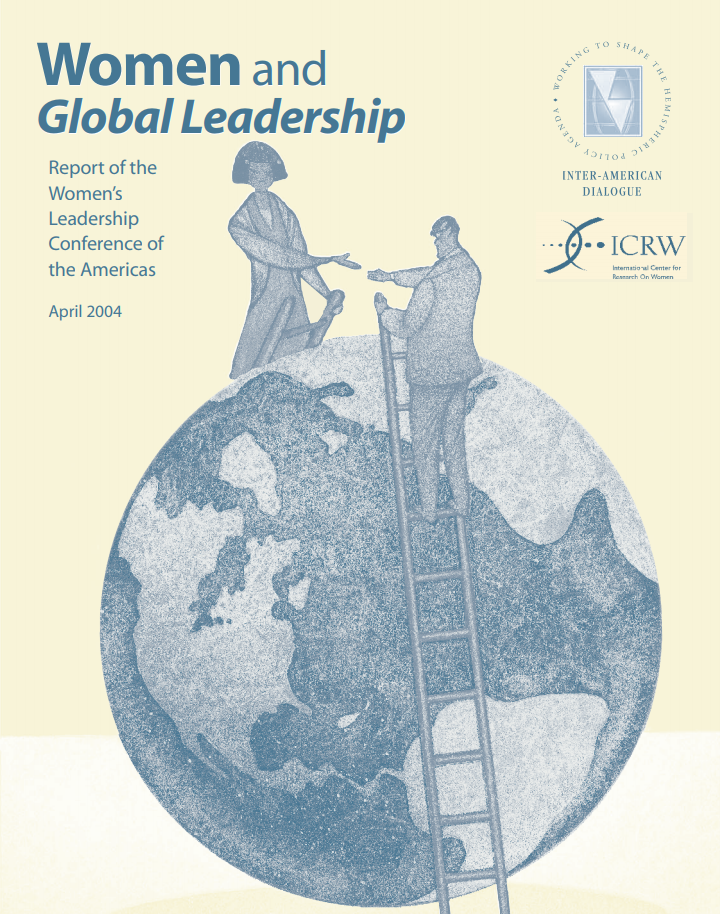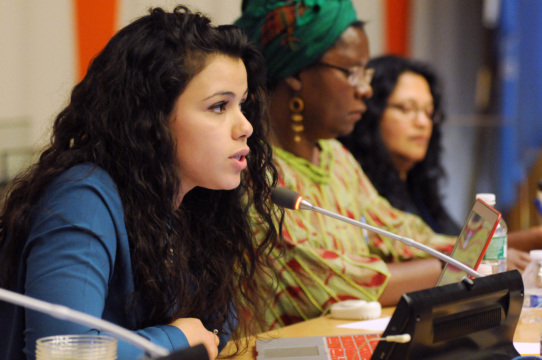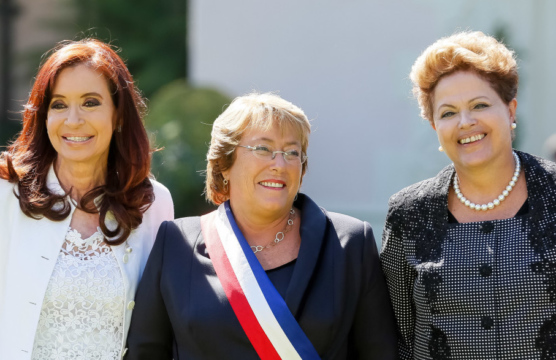What Roles are Women Playing in Mexico’s Drug War?
What roles are women playing in Mexico’s brutal drug trafficking war?
The numbers of women occupying senior leadership positions in foreign and economic policy making in the Western Hemisphere have dramatically increased in the past two decades. In increasing numbers, women occupy top posts in international organizations and in foreign, finance, trade, and defense ministries in national governments. These impressive gains, however, have been uneven across countries and institutions—and still lag behind women’s educational achievement and their participation in the workforce. As with politics in general, the highest circles of power still remain largely male-dominated. Women are often held back by pervasive, subtle, and sometimes unacknowledged attitudes about their proper place and role in society. Nonetheless, women’s numbers and influence are growing. These are the major conclusions of a report commissioned by the Women’s Leadership Conference of the Americas (WLCA)—a joint initiative of the Inter-American Dialogue and the International Center for Research on Women.
The report concludes with measures that leaders can implement to foster continued progress. International organizations and national governments should systematize and maintain gender-disaggregated statistics, and make them accessible to the public; they should be held accountable for setting goals and implementing policies and practices that promote gender equity at the highest levels; they should analyze the reasons for gender inequity at the upper levels, and come up with timetables and plans to remedy the situation; and international organizations and national governments should create infrastructures to provide families with adequate childcare options.
In undertaking this research—which included data collection and more than fifty interviews with women leaders throughout the hemisphere—we set out to generate information and analysis on the numbers, roles, and infl uence of women in foreign policy agencies—and how they are evolving over time. Our interviews and surveys included women in the Americas who currently hold or have held senior foreign policy decision making posts in national governments—as heads of state, of central banks, and of ministries and secretariats responsible for the economy, fi nance, foreign affairs, trade, development, or defense—as well as in international institutions.
The WLCA believes that the number of women in leadership is a concrete indicator of a government or institution’s progress (or lack thereof) toward fulfi lling their commitment to women’s equity. The WLCA has produced this report as part of its continuing efforts to monitor progress on promises made to women by leaders of governments and international institutions.
The WLCA is a network of some 100 women leaders drawn from throughout the hemisphere, dedicated to expanding the numbers and enhancing the contribution of women in top leadership positions in Latin America and the Caribbean—and, in so doing—to help improve opportunities for all women in the region. The group’s commitment to this mission is based on the conviction that leadership does matter, and that women in positions of power and influence will contribute in critical ways to the broader expansion of
women’s rights and opportunities in all sectors.
This report would not have been possible without the sustained support of the Ford Foundation and the Inter-American Development Bank. Special thanks are in order to Virginia Bouvier, currently at the United States Institute of Peace, for directing the research and writing the report.
Peter Hakim
President
Inter-American Dialogue
Geeta Rao Gupta
President
International Center for Research on Women (ICRW)
Joan M. Caivano
Director
Women’s Leadership Conference of the Americas (WLCA)
|
|
What roles are women playing in Mexico’s brutal drug trafficking war?
How are women faring in Latin America? Where has progress been made and how has that been achieved?
Would this be a more compassionate, more peaceful planet if more of it were ruled by women?


